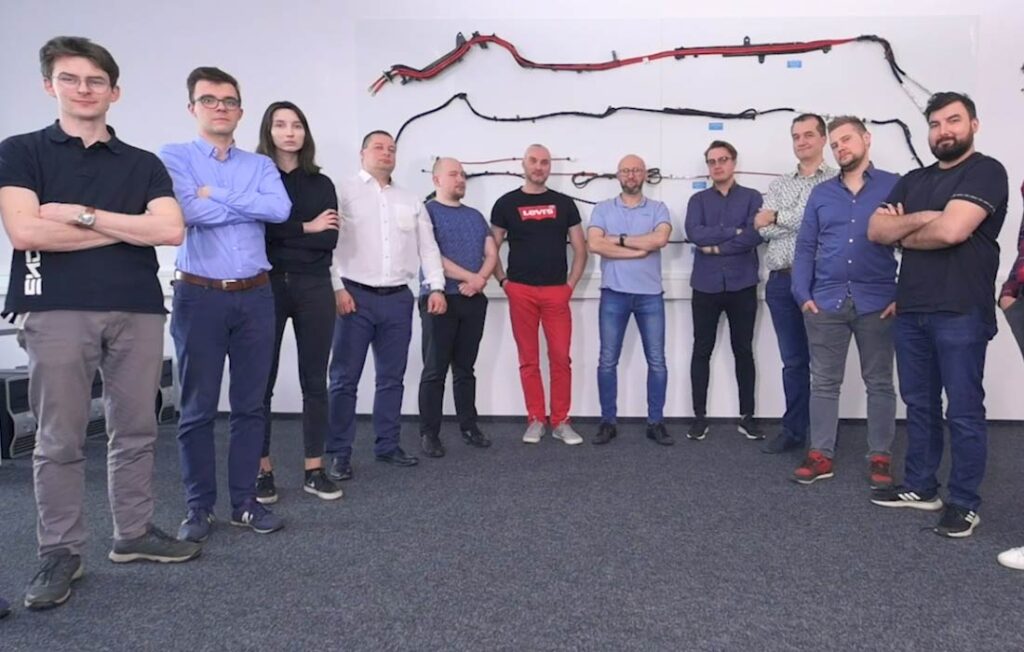Nowadays, car manufacturing is increasingly complex, forcing manufacturers and component suppliers to look for new solutions. One of these is nearshoring.
Uncertainty still hangs over supply chains, caused by rising fuel prices, soaring labour costs, and the global political situation. In response, more and more companies are turning to nearshoring. The phenomenon involves designing and manufacturing components closer to the head office, reversing the decades-long offshoring trend. What issues do OEM and TIER1 companies currently face? To what extent can nearshoring be their solution? These questions will be answered by Damian Dubiel, Team Manager at Endego.
It is a practice that focuses on outsourcing services to countries close to the company’s headquarters. It simplifies operations and reduces costs. Furthermore, it focuses on proximity to suppliers and optimizing the production chain. This allows the company to keep production costs as low as possible while offering the highest quality.
1. production chain disruption
The COVID-19 pandemic set in motion a sequence of events that have since contributed to the disruption of the car manufacturing process, starting as early as the component design stage. The lack of remote working infrastructure in countries such as China and India has caused significant delays in the design process of components and entire systems. In China, one of the largest automotive markets in the world, more than two-thirds of companies were forced to stop work due to lockdowns. This also severely affected the entire production process, as these countries were among the global sector’s leading exporters of raw materials and components.
In 2022, on the other hand, the war in Ukraine forced automotive companies to reduce or withdraw from operations in Russia and Ukraine. The conflict has resulted in the closure of many parts design companies, causing further delays, disruptions in the production process, and a sharp increase in the price of already expensive parts and, consequently, entire vehicles.
Experts say that car manufacturers have a huge problem getting design projects in on time, causing further disruptions to the vehicle production process. The result is very long waiting times for new cars in showrooms and frustrated customers.
2. Increased labour costs
Due to the reduced demand for products during the pandemic, some companies in Western Europe decided to reduce the number of jobs. As a result, many specialists moved to other, more stable industries. Companies are now struggling to find engineers and specialists. The limited workforce supply from this sector has also pushed up average wages.

Moreover, due to the constant changes in the market, companies do not want to hire a staff of engineers to work on one project. This is because they have no guarantee that more will be recruited shortly. Specialists can’t be fired when a project is over, and it is unprofitable for these companies to maintain a staff of people for a whole year when there are no projects.
3. Complicated delivery process
On average, a vehicle consists of around 30 000 components. All these parts have to be appropriately designed to be compatible. It is a considerable challenge to link all these processes into one chain to ensure consistent production. Overlooking any part can have a catastrophic impact on the entire sourcing process.
4. Quality control issues
In car manufacturing, it is crucial to ensure no errors occur during the design process. A lack of control and audit can lead to quality problems, resulting in recalls, revenue loss, wasted materials, and damage to the company’s reputation.

5. Legislative changes
Every year, the automotive industry becomes more and more focused on the environmental agenda. From 2035 onwards, no more new cars with an internal combustion engine will be registered in EU countries. This has created additional pressure on the sector and further exacerbated the bottleneck in semiconductor production.
Both manufacturers and external partners are expected to build vehicles in an environmentally friendly way. Unfortunately, this often involves employing teams of specialists with access to the relevant knowledge and creating entirely new solutions.
Nearshoring means moving some or all production to neighbouring countries, where raw materials and workers are cheaper. This allows the company to keep design and production costs as low as possible while offering the highest quality.
Poland is a trendy choice in this respect, as it is possible to reach most cities in the most densely populated part of Europe from here within 24 hours and the entire continent within 48. In addition, Polish specialists are valued worldwide for their expertise and the high quality of their services at labour costs that are competitive with other countries. Thanks to our country’s geographic location, as an Endego, we also gain proximity to our client’s headquarters, where we can delegate residents (constructors, project leaders), directly impacting better and more qualitative project management.
– Flexibility
The situation in the automotive market requires car manufacturers and component suppliers to respond flexibly and quickly to changing conditions. Nearshoring strengthens the company’s competitiveness by providing access to cheaper raw materials and labour in the immediate vicinity.
Thanks to our large specialist base – we have over 100 engineers working for us, with expertise in various fields – Endego can meet challenges even at the last minute. Our speed of work and quality of design guarantee that the work will be completed on time and with the utmost accuracy.

– Comprehensiveness
Choosing a company specializing in every element of vehicle design is a significant advantage in terms of cost and time. After all, it is challenging to organize and control the process so that all parts are designed on time when the task has been outsourced to several or a dozen companies spread across the globe.
Endego is a full-service company that handles every design stage: from individual parts to entire car modules. We work in various areas, including electrical, mechanical, or body and lighting design. This saves our customers time, as they do not have to contact multiple companies to realize their project. At the same time, Endego’s specialists watch over the quality of the completed models. This is all to ensure that our customers are satisfied with the final products, which meet all their requirements.
– Quality
A significant advantage of nearshoring is the excellent value for money of the work performed. Polish engineers and specialists are valued worldwide for the high quality of their services and professionalism. We offer support in the field of engineering:
– design of individual parts;
– ensuring the presence of resident engineers at the company’s premises;
– comprehensive design leading, i.e., leading the project in its entirety.
An essential advantage of Endego is the excellent quality of the services provided and the quality control at every stage of the project. Clients do not have to worry about errors in their projects. Our advantage is also our professional customer service. Endego focuses on satisfying its business partners and ensures this through a professional and individual approach to each project. Customers can always count on professional help, advice, and technical support at every stage of the work.
– Innovation
Nearshoring provides access to expertise, allowing you to invest in the development of your business and stay ahead of the market. Collaborating with local companies with experience in the automotive industry and access to research and development facilities enables the quality of the products and services offered to be improved at competitive prices.
By using Endego’s services, customers can access specialist knowledge and develop new solutions. We have expertise in developing unusual vehicles, such as a wheelchair platform, that significantly improves the communication capabilities of people with disabilities. Innovation is a unique value for us, so our engineers often give lectures and collaborate with universities. And this cooperation results in innovative projects, as well as successive generations of specialists infected by the passion for motoring. Our support for the PWR Racing Team research club perfectly illustrates this. Thanks to Altair software, the students have built an all-electric car that has succeeded internationally. (video here)
– Price
Another advantage of nearshoring is the reduction of design and production costs. Many Polish suppliers offer their services at very attractive prices, allowing savings of up to several tens of percent compared to Western companies.
At Endego, we always focus on an individual approach to the customer. We set prices during consultations and offer the most advantageous solutions. The result is a multitude of satisfied international customers. Endego’s partners can be confident that their projects will be completed to the highest standards and that the service will remain cost-competitive. In our work, we prefer three business models for running projects.
To summarise: we recommend that companies who care about the quality and timeliness of outsourced tasks consider relocating part of their business to geographically close and more cost-competitive countries – in the case of companies from Western Europe – countries such as Poland. This allows you to reduce production costs, shorten lead times, gain expertise, and control the production process. Endego is the perfect business partner for companies looking for support from the automotive industry. We offer our customers professional service, punctuality, access to specialists with a wide range of competencies, competitive prices, and attention to the highest quality workmanship. All this is at your fingertips.
Rolling stock modernisation is becoming an increasingly attractive alternative to purchasing new vehicles, especially with rising costs, budget constraints and the need to operate in line with sustainable development principles. When does modernisation make sense and how can it be carried out effectively?
Read moreToday, bumpers are much more than just components that protect against the effects of collisions. They are advanced components that combine safety, aerodynamics, aesthetics and integration with electronic systems. How are they designed and why are they so important in modern vehicles?
Read moreModern trains are not just means of transport, but also embody innovation and safety. The design of the front end and car body combines aesthetics with advanced engineering and European standards. How does the appearance of a train affect its aerodynamics, energy consumption, safety and brand image? Here’s what’s behind the modern design of rolling stock.
Read more